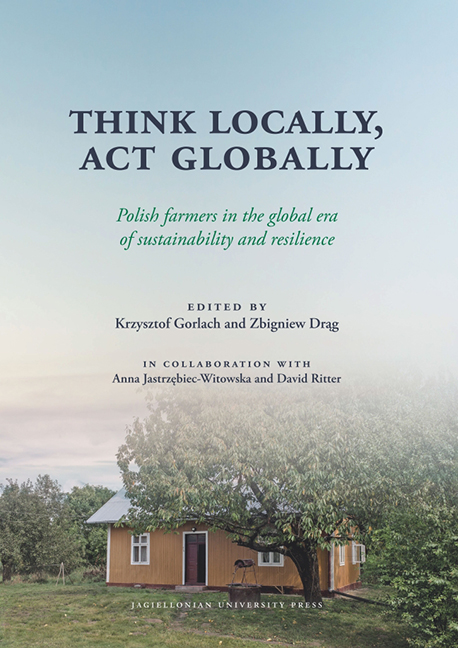Book contents
- Frontmatter
- Contents
- Family Farming: A foreword
- An Introductory Letter from the First Editor: Where the horses, cows, and even cats had their own names
- Part One Theoretical and Methodological Considerations
- Part Two Changes in the Post-Communist Transformation
- Part Three Diversification of Farmers’ Strategies
- Part Four Some Independent Studies
- Conclusion: Some Final Remarks from the First Editor
- Afterword: Renewing a Sociology of Agriculture
- Biograms
Chapter Nine - Class Diversification among Polish Farmers in 2017
Published online by Cambridge University Press: 16 July 2022
- Frontmatter
- Contents
- Family Farming: A foreword
- An Introductory Letter from the First Editor: Where the horses, cows, and even cats had their own names
- Part One Theoretical and Methodological Considerations
- Part Two Changes in the Post-Communist Transformation
- Part Three Diversification of Farmers’ Strategies
- Part Four Some Independent Studies
- Conclusion: Some Final Remarks from the First Editor
- Afterword: Renewing a Sociology of Agriculture
- Biograms
Summary
Some Theoretical Considerations
General Considerations about the Issues of Classes
The thesis about the death of classes appeared in sociological literature some twenty years ago (see Pakulski & Waters, 1996), and its authors made numerous arguments to support it. The most important arguments were related to the socioeconomic role of the state in interfering with market processes which, according to the traditional sociological view, previously served the purpose of creating the effect of structure. The taming of these processes weakened the class structure. Other arguments stressed the increasing social role of various organizational structures and the authority of these bodies. At the same time, educational qualifications, as well as professional knowledge and skills, also gained importance while other, more complex socio-professional, ethnic, nationality, and race-related divisions became more noticeable. Authors such as Pakulski and Waters (1996, p. 280) pointed to the weakening of patriarchal relations and strengthening of the role of cultural dimensions in lifestyles and personal tastes.
In our view, this thesis stretches much too far. Admittedly, the factors mentioned above diminish the visibility of economic factors and dependencies, such as the availability of production means or ownership of economic capital, and consequently obscure the importance of class structure; still, they do not make classes irrelevant. Quite to the contrary, references to economic and class interests, as well as various social and economic factors, may well lead to a more comprehensive approach to class issues, especially in conceptualization of class positions. Such a strategy of analytical construct is highly preferred in this chapter, mainly in the conceptualization of class positions. The analytical construct strategy will be applied to the reflection of this chapter.
On the surface, it would seem that the subject of class position in farmers’ circles has been addressed quite extensively in the fifth chapter devoted to “big” farmers. As presented in that chapter, farm area was the main factor distinguishing between the large and the remaining (smaller) farms that constituted the only two categories in our analysis. In our view, leaving the analysis at that would be insufficient. Obviously, the social position of farm users depended on farm size, but this was not the only variable playing a significant role here.
- Type
- Chapter
- Information
- Think Locally, Act GloballyPolish farmers in the global era of sustainability and resilience, pp. 373 - 410Publisher: Jagiellonian University PressPrint publication year: 2021



